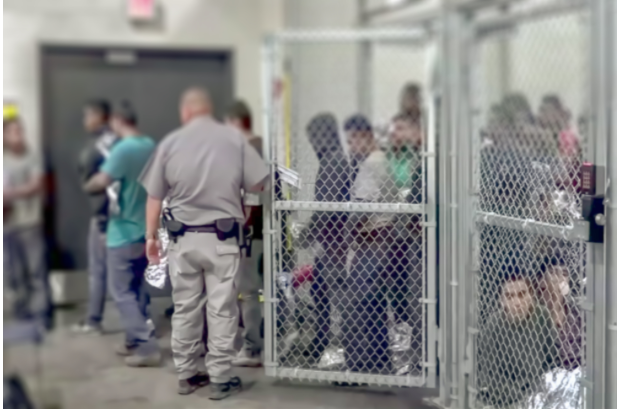CommentsOP ED - “I’m scared all the time, even in my sleep.” I will never forget the teary-eyed 8-year-old who told me that — one of the bravest young people I’ve ever met.
I met him just five months after the Trump administration took office and began an onslaught of harsh immigration actions, including prioritizing the deportation of all undocumented immigrants. That included this 8-year-old citizen’s parents, and he was terrified of losing them.
Despite the change in administration, our country still has too many children living with the same fear. With Congress failing again to create a pathway to citizenship, over 5 million U.S. children continue to face instability due to their parents’ precarious immigration status.
But if it chooses, the Biden administration can do much more now — even without legislative action — to help millions of families.
A White House task force on reunifying families forcibly separated by the Trump administration recently sought input on preventing future harm. Hundreds of experts and advocates responded, including leading children’s groups, urging the administration to prioritize children and families in immigration policy decisions.
Putting children and families first means ending harsh immigration enforcement that risks children’s lives and tears families apart. Beyond ending the horrific expulsion of asylum seekers — including pregnant women, children, and infants — to dangerous conditions, it’s time to reverse our immigration system’s punitive approach.
Today, nearly 18,000 immigrants are languishing in jails — most of them run by for-profit corporations — with no guaranteed access to legal counsel or timeline for release. Many have children who will be the future of our country, but they can only talk to their kids through an occasional phone call.
I met one mother who shared how much her daughters worried about their father. He was detained in the massive 2019 Mississippi raids that targeted poultry plant workers.
The father was detained hundreds of miles away, making it impossible for his family to visit him regularly. Even phone calls cost about $50 a week, too costly for a family without their primary breadwinner.
His 2-year-old often refused to eat or drink milk after his arrest — a common symptom of PTSD in young children. When his family was finally able to visit him in detention, the young girl shrieked with joy and rushed past guards to throw herself in his arms.
Instead of cruelly locking people up, our government should prioritize proven community-based programs. Rather than jailing immigrants or tracking them with ankle bracelets, community-based programs connect people and families to resources, including legal representation, as they await the outcome of their case.
The Freedom for Immigrants nonprofit has been piloting such programs since 2014. Before it was stopped by Trump, even the Department of Homeland Security piloted a similar program that served asylum-seeking families.
Attending to the best interests of children also means making deportation the exception.
Thousands of parents with deep roots here continue to be deported, making their child’s worst nightmare a reality. These kids suffer long-term harm to their mental and physical health, educational outcomes, and economic security, while parents left behind struggle to make ends meet.
Rather than deport, our government can use prosecutorial discretion for parents or caregivers, allowing them to remain here and work legally. Existing options, such as Temporary Protected Status, can also be extended to those who can’t safely return to their country.
Finally, parents who were unjustly deported should be allowed to return and reunify with their families.
While a path to citizenship and restructuring our immigration laws are critical, a more humane and family-centered approach to our immigration system is possible right now. No 8-year-old should have to fear losing a parent simply because an immigration system fails to consider his well-being.
As an immigrant advocate and mother to two young children, I remain hopeful we can change course so all children have a brighter future.
(Wendy Cervantes (@WendyDC5) is the director of immigration and immigrant families at the Center for Law and Social Policy. This op-ed was distributed by OtherWords.org.)





